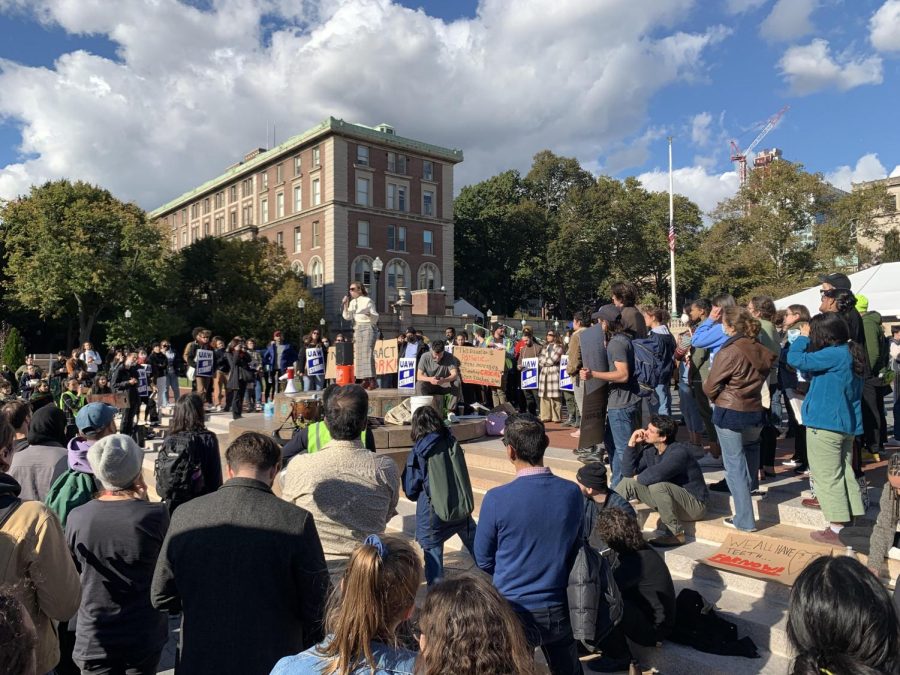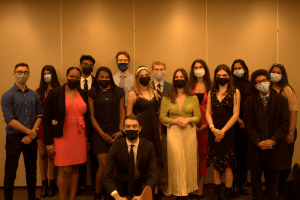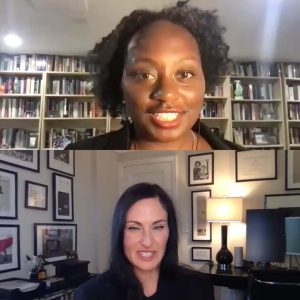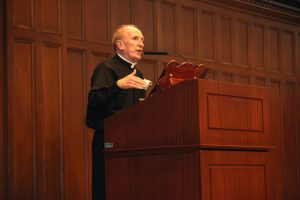Columbia Student Worker Union Strikes on Nov. 3
In an ongoing fight to secure a fair contract with Columbia University, the union of Columbia Student Workers plans to strike on Nov. 3, 2021.
COURTESY OF JONATHAN BEN-MENACHEM
Over 2,000 student workers voted in favor of a strike and many organized on Nov. 3 in an effort to obtain increased wages, health care benefits and protection from sexual harassment.
November 9, 2021
The union of Columbia Student Workers (SWC) held a strike on Nov. 3 in an ongoing fight to secure a fair contract with Columbia University. The union is composed of graduate and undergraduate students who are employed by Columbia with a bargaining committee of 10 people.
The SWC’s bargaining committee submitted a new proposal to the university, including requests for an increase in wages, health care benefits and protection from sexual harassment.
“Columbia has not responded to our proposal,” Johannah King-Slutzky, rank-and-file organizer, said. “We have repeatedly asked for counter proposals but they have not given us any.”
A strike authorization vote was held on Sept. 29. More than 2,000 Columbia student workers voted overwhelmingly in favor of authorizing a strike.
“Many of them are expected to go hundreds of thousands of dollars into debt over the course of their time here because we make below the cost of living, particularly if you’re raising a family.” Johannah King-Slutzky, rank-and-file organizer
King-Slutzky is a Ph.D. student in the English and comparative literature department and organizer of SWC parents, who are demanding health care benefits and fair wages. According to King-Slutzky, parents employed by Columbia are some of the people who are most affected by the low compensation.
“Many of them are expected to go hundreds of thousands of dollars into debt over the course of their time here because we make below the cost of living, particularly if you’re raising a family,” she said.
King-Slutzky said some SWC members have had to move to other cities for more affordable rent prices. She added that a colleague of hers had to choose between paying rent or childcare.
Shakti Castro, a first-generation student and a third-year doctoral student in the history program at Columbia, works as a teaching assistant. She became a single mother during the pandemic.
“Being a parent structures my entire interaction with the university,” Castro said. “Columbia is my employer and my educator.”
“If they don’t pay us, why should we work for them? We’re not going to. It doesn’t make any sense.” Johannah King-Slutzky
In the experience of Castro and many other parents who are both enrolled in and employed by Columbia, the $2,000 yearly subsidy provided by Columbia for childcare is not nearly enough, leaving them scrambling to figure out how to pay for childcare.
“I’m grateful for anything, but it’s really hard to do what we do with the wages we’re making,” Castro said.
Due to Columbia’s change in pay policy earlier this year, some student workers have had a shortfall of about $8,000 in their wages.
According to King-Slutzky, the policy “antagonized” the group’s members and led them to understand the necessity of a strike.
“If they don’t pay us, why should we work for them? We’re not going to. It doesn’t make any sense,” she said.
“It is very clear when we talk to people that they are chomping at the bit to begin a strike.” Johannah King-Slutzky
Castro cited the return to campus after the pandemic as an important factor in deciding to strike. She explained that many student workers were disturbed by Columbia’s lack of acknowledgment for their struggles throughout the pandemic and lack of support despite Columbia having the financial capability.
“It is very clear when we talk to people that they are chomping at the bit to begin a strike,” King-Slutzky said.
Last year, the SWC began its strike, but action slowed down at the end of the spring semester. Following internal reform and the reconstitution of the SWC’s bargaining committee over the summer, the union returned to campus this fall with increased momentum and a more streamlined and effective approach to the union’s organization and movement.

Another difference from last year’s strike efforts is that Columbia recommenced in-person operations on campus. Therefore, the lack of labor will have an even greater impact on the university.
“We are all present; we are ready to go on the picket line; we’re talking to each other in person instead of on Zoom; and (for example) if we want to go protest with 50 of our students and other colleagues, we can do that in three days’ notice, and that’s not something that we had last year,” King-Slutzky said.
King-Slutzky said the strike is not only about compensation, although fair wages are a huge part of the SWC’s demands. Protections for workers against sexual harassment and sexual assault in the workplace is another important issue to many members of the union.
Leading up to the Nov. 3 strike, student workers hoped to win major concessions from Columbia to ensure their rights, safety and wellbeing in their school and workplace. “I want to do my job!” Castro said. “But I want to do my job from a place where I feel supported.”
















